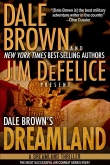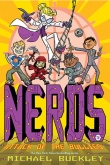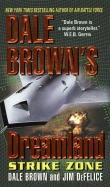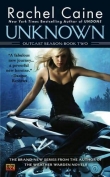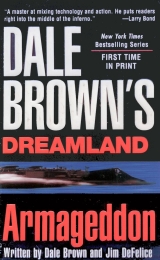
Текст книги "Armageddon"
Автор книги: Dale Brown
Жанр:
Боевики
сообщить о нарушении
Текущая страница: 15 (всего у книги 20 страниц)
And situations were developing. The sultan’s army had retaken two posts on the southern border with Malaysia and now seemed in firm control of the southwestern third of the country. Police units in the towns on the northern coast that had not fallen to militants had rallied over the course of the day. A number of telephone and power lines that had been cut had been restored. Loyal forces had won a major battle with guerillas near Kapit, killing over a hundred. Neither LADS nor the patrolling Megafortresses had detected any Malaysian army units assisting the terrorists, and in at least one instance a Malaysian army unit had helped the Brunei police force pursuing a group of rebels over the northeastern border.
On the other hand, the militants had spent the preceding day tightening their grip on the area around the capital. They controlled the shoreline and had appropriated at least two small patrol boats, operating them on the river.
The LADS system provided low-powered radar coverage of much of the kingdom. It also provided video coverage of much of the capital and several major road and waterways, along with the entrance to the harbor and the platform where Whiplash was. Two more units were en route from Dreamland; one was intended for the Malaysian air base, and the other would be used as a roving sentry. Twice as long as the others, the sentry carried better resolution cameras and could be flown higher and faster. It did not, however, include the LED technology that made the others almost impossible to see from the ground.
Dog steadied Penn into her final approach for the runway, fighting the optical illusions that made it appear as if it were two different roads, a ravine, and a set of boulders. The men on the ground had cleared the obstructions and assured him that it was solid concrete covered by paint; Dog focused on the landing cues in his HUD and settled perfectly onto the runway.
“And for our next trick, we land in downtown Las Vegas,” joked McNamara, his copilot, as they spotted one of the Special Tactics controllers playing traffic cop near the end of the runway. He had them turn on an apron to an access ramp at the side; from the sky it had appeared to be a pond, though up close the camouflage didn’t work nearly as well, making it seem more like an abstract painting by Mark Rothko. The trees bordering the ramp were real enough, as was a collection of jagged rocks; the path was too narrow for the Megafortress and so Dog had to park the plane there.
Dog had picked up a three-man U.S. Army Special Forces team in the Philippines; the men had worked with the Malaysian military in the past and would assist with setting up security, which was to be provided by the local Malaysian forces for the time being.
“All right, let’s get the plane squared away and assess the situation,” he told the crew and the soldiers below as they shut down the engines. “McNamara, you find out what the status of the C-17 is with our tech people and maintainers while I go talk with the locals. Don’t anybody go too far away,” he added. “I hear the snakes in the jungle can be pretty vicious.”
Kota Kinabalu, Malaysia
0800
Dazhou Ti felt as if the terrace he was standing on had given way and he was now falling toward the sea. The smokestack of the tug that had brought him to the seaside town loomed below, a black whirlpool sucking him toward that abyss.
General Udara had traveled to the seaside town to speak to Dazhou personally: not to berate him for losing the Barracuda, but to tell him that the war was over. The sultan was to be allowed to regain his kingdom.
“Impossible,” said Dazhou, who had only finished notifying the kin of his dead crewmen an hour before. “Impossible.”
“The president has decided,” said Udara.
“No. No. My men have died.” The general was not a man to argue with, but Dazhou could not help himself. “No,” he repeated. “This cannot be. There is so much to be done—the Americans, we can defeat them. They’re paper tigers.”
“You of all people should know they’re not,” said Udara. “They proved it in their encounter with your ship. This all helps us in the long run,” added the general, trying to remain upbeat. “Because the guerillas will be taken care of by the Americans. Leaving the maggot sultan and his family alone is a small price for ridding ourselves of the fanatics. Kuala Lumpur has spoken,” he said. He referred to the central command, not the prime minister, and meant that the matter was closed.
“No,” said Dazhou.
Udara’s patience was now exhausted. His face flushed, its brownish tint becoming nearly purple with his rage.
“You will accept your orders, Chinaman!” he thundered. “You will do as you are told!”
“My men,” Dazhou said. “They must be revenged”
“You will do as you are told. You are lucky, Dazhou, that I remember the contributions you have made, and your own glory under fire. Because otherwise I would pummel you with these two fists.”
Their faces were so close that Dazhou felt the heat of the general’s rising blood. He knew that the proper action now—no matter what he really intended—was to feign submission, to pretend to be willing to go along with his orders. But he could not control his emotions sufficiently to make an accommodating gesture, even a small one. The best he could do was keep himself from yelling back at the general.
“Do you understand me, Dazhou?” said Udara.
“I have no ship,” he managed finally.
The general took a step away. “Then the matter is settled.”
Dazhou didn’t respond. Udara had not berated him for losing the Barracuda, but this was completely in character for the general. Since he had nothing to do with its creation or operations, Udara looked on it as just another weapon, little more than a jeep or armored car that could go to sea.
Kuala Lumpur would have a considerably different view. Dazhou’s options were clear. Either he ran, or he sought revenge.
“Do you understand me?” Udara said, once more master of his emotions.
“I have no ship,” Dazhou repeated. “And no men.”
Udara nodded grimly. “War is a difficult thing.”
Somehow, Dazhou managed to nod, rather than telling the general what he really thought of his easy cliché.
Bandar Seri Begawan (capital of Brunei)
1000
Sahurah’s head throbbed constantly, a sharp thump at the top and right side, God’s drumbeat calling him to task for his failures.
How could he doubt the wisdom of his teachers?
How could he think that the devil American was as honorable and holy as he?
Sahurah tried to set the questions aside, tried to ignore his transgressions, his many failings. He had to concentrate on his duties. Brothers were streaming into the city, each one willing to do what needed to be done, but each needing to be shown his responsibilities step by step. Sahurah had selected several deputies, but they still turned to him for orders. He had become the most important person in the capital, after the imam.
Success had been incredibly swift; not even in his dreams would Sahurah have thought things would go so well. And yet, when he thought of this, when he saw the obvious sign that Allah had blessed them, his head pounded even more. He wanted—what did he want?
His place in Paradise. Nothing beyond that.
One of his lieutenants, a young man named Dato, appeared at the door and was searched by the two bodyguards who had attached themselves to him since the attack at the airport. Dato had come from near Djakarta, and a slight accent of the poorer districts around the Indonesian city lingered on his tongue when he spoke.
“Fifty more brothers have come to watch the road to the south,” said Dato in Malaysian. “We need weapons”
“What about those at the police station?”
“The weapons there have been given out.”
“The armory?” asked Sahurah.
“What wasn’t blown up by the nonbelievers is so antiquated we have no ammunition for it,” explained Dato.
The pain in Sahurah’s head subsided as he focused on the problem. “We can give them trucks, and the supplies taken from Tutong. Deliveries have been promised from our allies. But we cannot wait; send the men while you search for weapons. I would expect a counterattack soon.”
Another of Sahurah’s men came to the door. This was Paduka, a native of the capital who had proven invaluable in finding sympathetic friends.
“Two pilots,” announced Paduka triumphantly. “Including one who worked for Air Defense Minister Smith.”
“Who?”
“His name is Captain Yayasan. He’s in the hallway.”
“Is he a sincere believer?”
“We have spoken many times before today,” said Paduka. He told him of an encounter the pilot had had at the start of the offensive when he had feigned cowardice to avoid shooting at a unit of brothers.
“He would have done better to have shot down the other plane,” said Sahurah at the end of the story. “Bring him in. Let me talk to him.”
“Just him? Or both men?”
“Just him.”
Sahurah turned to the table where a map of the area had been laid out. He showed Dato where the brothers were to be deployed. A network of reinforcements had to be established. They had machine-guns mounted in several pickup trucks; they could bring firepower within a few minutes if attacked.
They lacked heavy weapons; Sahurah was hardly a military strategist, but he understood that this was a great weakness.
Paduka and the pilot Yayasan stood silently as they finished. Sahurah turned to them. Yayasan was a short man, no taller than five-three; his face had sharp, tight angles.
“You believe?” Sahurah asked.
“I—I do,” said Yayasan.
The hesitation reassured Sahurah. He glanced at the pilot’s hands. His fingers moved as if they were on fire.
Sahurah recognized that the man would crumble under pressure, and that as much as his faith may have accounted for his decision not to fire on the brothers the other day. He could be used, but very carefully.
“Could you teach the other pilots how to fly the large American plane?”
“My lord, of course.”
The top of Sahurah’s head pummeled him. “I am not a lord. I am nothing but a servant. Address me as ‘Commander’.”
“Pardons, Commander.” The pilot’s fingers vibrated ever more violently.
“What do we need?” asked Sahurah.
“I would have to examine the aircraft, Commander.”
Sahurah nodded, then looked at Paduka. “There is a man at the terminal, he piloted a 747. He told me last night he would be able to fly the large aircraft. Yayasan will teach him. And the other man you found.”
“Yes, Commander.”
The guards at the door snapped to attention. Sahurah turned to see the imam and the Saudi. An entourage of bodyguards and others flooded into the room behind them. Though the room was fair-sized, it now seemed crowded.
“Imam,” he said, bowing his head.
The imam gave him a tired smile and touched his shoulder. “Sahurah, my young friend, you have done well.”
Sahurah felt himself blush. “The Americans have formed an alliance with the Malaysians,” said the Saudi, speaking in Arabic. “It was not unexpected. But now will come the test”
Sahurah turned to him. This was the first time that the older man had addressed him directly. His voice seemed thin, almost frail, and yet his eyes were steely. Their gaze held Sahurah, and for a moment his pain retreated.
“We will triumph because Allah is on our side,” said Sahurah. “It is a holy war, and our cause is just.”
The Saudi said nothing. He did not smile, and his eyes did not blink.
This is what faith looks like, Sahurah thought. These are Allah’s eyes, shining through his holy servant. If only I were worthy of such a gaze.
The imam tapped his shoulder gently. “Prepare then, son,” he said. “Prepare well.”
Sahurah bowed, and for a moment everything else in the world receded. When he put his head back up, the imam and the Saudi, along with their entourage, had gone.
Southeastern Brunei
Exact location and time unknown
One thing he had to say for captivity: it sure made him hungry. Mack had eaten all of the slop they’d given him for breakfast—or lunch or dinner, whatever meal it was.
He could tell from the window that it was daytime outside, but he’d fallen asleep earlier and couldn’t be sure how long he’d slept. The window had been nailed shut from the outside; now that there was light he could see one of the nails at the very top where it had come through the casing. The glass panes and wood between them would undoubtedly give way if he hit them hard enough. But the sound would undoubtedly alert the guard near his door, and there was no telling how many others were posted around on the outside. He couldn’t see anything out the window except for vegetation.
Paper covered the walls, which were constructed of wooden boards nailed up against studs. The paper had buckled near the mat that served as his bed. The bubble ran along one of the boards, as if the air had squeezed in from the outside. Mack glanced at it several times as he walked back and forth, trying to come up with a plan to escape. Finally he went to the wall and poked at it with his finger. The material, though thick with paint, was pretty brittle, and he was able to punch a slight hole by jabbing with his thumb. He started tearing the paper, and exposed a jagged strip about six inches wide and two feet long, where two of the boards were joined together. A bit of sunlight poked through at the corner.
If he had a crowbar, or something he could use for one, he thought he’d be able to dismantle the panels easily. Mack stepped back from the wall, reexamining the room for something he could use as a tool, though he’d been over every inch earlier. He flipped the mat and ran his hands over the material, thinking there might be a spring inside.
Just as he concluded there were none, the door opened. Mack looked up from his knees at the large man who came in. The man, dressed in loose-fitting white pants and a long white tunic, seemed perplexed; Mack, on his knees, realized that the militant thought he had found him praying.
“What?” Mack snapped.
The man said something he couldn’t understand, then glanced around the room. He finally spied what he was looking for: the piss bucket. He walked to the corner and took it.
Mack got up, walking slowly to the doorway. A guard stood just outside; he had an AK47 in his hand. Unlike the man who had come for the can, he was short, and in Mack’s opinion easily overpowered. As Mack stared at him the idea of rushing the man began to percolate in his brain. His adrenaline began screaming at him, blood and hormones rushing together.
Then he heard more footsteps. The man who had taken the can returned with it, empty. He glanced at him but said nothing.
My chance, thought Mack. Rush the kid and grab for the gun.
But by the time the idea formed in his head the man was closing the door.
Aboard “Indy,” approaching Malaysian Air Base
1100
Breanna swung the EB-52 over the southeastern tip of Borneo, checking her location as she got ready to land at the scratch air base. With the rest of the crew starting to drag after a long patrol and return to the Philippines to refuel, Bree had done almost all the piloting.
“Pretty country,” said Major Alou.
“Yeah. It’s paradise down there, I’ll tell you,” she said. “If you ignore the madmen with the guns.”
She hit the last waypoint and turned, spotting the airport in her windscreen. The other EB-52 and the C-17 that had brought the tech people sat at the far end of the strip. The airfield was narrow and the camouflage a bit disorienting, but Breanna had landed under much worse conditions; the wheels didn’t even chirp as she touched down.
“Hey, stranger,” said her husband when she came down the ladder ten minutes later.
“Hey;” she said. She leaned over and grabbed him, felt his strong arms clutching her back.
“I missed you,” he whispered.
“I missed you, too.”
She felt tears coming to her eyes, then running down her cheeks. She pressed her head against the side of his head for another few seconds, then slowly, reluctantly, straightened. “Boring flight?” asked Zen.
“Boring flight.”
“Good,” he told her. “So I hear you’re first officer now.”
“Don’t rub it in, Zen.”
“Want to see our digs?”
“Nice?”
“Sure,” said her husband, wheeling himself away from the plane. “If you like concrete and spit.”
THE MALAYSIAN COMMANDER ASSURED DOG THAT HIS twelve men were more than enough to secure the base. The terrorists in the area had fled a month before.
“You think he’s right about the terrorists?” Dog asked the Special Forces soldiers when they left the Malaysian commander’s post.
“I doubt it,” said one of the soldiers. “The Malaysians were always underestimating them.”
“You guys better look over the defenses and see what you need to beef them up,” said Dog. He paused, watching as a Hummer descended from the MC-17 with the Dreamland trailer in tow. The MC-17 was to take off as soon as it was unloaded, flying back to the Philippines for supplies. And Dog had plans for the Hummer.
“That trailer will be our headquarters,” Dog told the SF men. “Make a list of what you need and we’ll try to get it.”
“Battalion of troops wouldn’t be bad,” said one of the sergeants, Tommy Lang.
“If you can find one, let me know,” said Dog.
He walked over to Zen, who was overseeing the deployment of the command trailer. “How we looking?”
“Should be up and running in a few minutes,” said Zen. “Can’t wait for the AC”
“Bree okay?”
“She went to look for a shower,” said Zen. “I tried to warn her.”
Dog smirked. “I have to go down to the village south of here and meet the lieutenant governor for the area. He’s expecting me sometime today and I’d like to get that over with. The Malaysian commander said we need to truck more water in no later than tomorrow. Hold down the fort while I’m gone.”
“I’ll do my best,” said Zen, swiveling his wheelchair around momentarily. Dog realized he’d gotten so used to Zen being in the wheelchair that he now simply took it for granted, not even considering whether it might be a factor in his doing his job.
“You’re not going by yourself, are you?” Lang asked him.
Dog shrugged. “I don’t think I need a translator.”
“Two of us ought to go for security,” said another of the SF sergeants.
“Fine with me, as long as one of you stays and figures out what we need for security here,” said Dog, heading for the Hummer.
THE CAPITAL OF THE TINY REGION WAS A SMALL VILLAGE FIVE miles from the base. The road through the jungle was paved and easy to travel. Once they reached the village, however, they found that the main street was no wider than a sidewalk back home; they had to leave the Humvee near a pack of small houses and walk in on foot. Dog and the two soldiers got about ten feet before they were surrounded by a mob of children. The Army men had come prepared—they pulled pieces of candy from their pockets, making sure the kids got a good look at them before tossing them to the side. But there were so many children that the way remained clogged.
Dog tried to push them aside as gently as possible. One kid held onto his leg, and the only way to dislodge him was to pick him up. This actually helped clear the way for some reason, the other kids stepping back to get a better glimpse of their friends in the stranger’s arms.
“Here we go, Colonel,” said one of the sergeants, pointing to a white-washed three-story building made of masonry block. It had no sign but it was clearly the most substantial building on the block.
Dog made it to the threshold, still holding the child. He turned around awkwardly, then settled the tyke on the ground.
“Sheesh,” he said.
“Yeah,” said Sergeant Lang. “Almost enough to make you get a vasectomy.”
Dog roared with laughter.
The meeting lasted only a few minutes. Dog thanked the Malaysian region’s lieutenant governor with some stock phrases a State Department official had suggested. The Malaysian, who spoke impeccable English, assured him that his country was a “steadfast ally” and would provide any hospitality possible.
“A truckload of water would be greatly appreciated,” said Dog, adding that the Malaysian base commander had said the arrangements were already in place.
The lieutenant governor knew about this and said it would be arranged. And then he suggested that they have something to eat. This could not be refused without giving offense, and Dog and the soldiers went inside to an office that had been hastily made over into an impromptu banquet hall.
The soldiers were familiar with the local cuisine. Even better, they were extremely hungry, and while his rank demanded that Dog take the first bite, he had no trouble letting his companions consume most of the food. They raved about the satay; Dog nodded and picked strategically at his plate, making sure to sample and praise everything while ingesting as little as possible.
After forty-five minutes of lunch, he used another State Department supplied formula to excuse himself. The Malaysian protested; he apologized and excused himself again; they protested once more, though less profusely, and Dog repeated the formula. The procedure took ten whole minutes to complete. Finally outside, he and his two escorts made it about halfway up the block before the children appeared again. Once more Dog found his way blocked by a two-year-old. He hoisted the kid to his chest, then scooped up another and made it to the Humvee.
“You could run for mayor, Colonel,” said Lang as they eased the Hummer back onto the highway.
“Yeah.”
“You got kids?” asked the other soldier, who was driving.
Dog laughed. “Yeah. One. She’s a captain in the Air Force. Matter of fact, she should be on the ground back at our little base by now”
The sergeant did a double take. Dog decided that he would recommend the man for a decoration for his diplomatic tact.
“I got a two-year-old,” said the sergeant. “Smartest little kid you ever saw.”
“I’ll bet,” said Dog.
“Then he sure can’t be related to you, huh?” said Lang.
“Always busting my chops,” said the soldier.
As he spoke, the Humvee ran over a mine that had been planted in the road. It exploded under the left front wheel, killing the driver and throwing Dog and the other sergeant out of the vehicle into the brush beyond the shoulder of the highway.
Off the coast of Brunei
1200
Danny Freah hunched over the table in the first room of the oil platform building, looking down at the satellite photos of Brunei Airport spread on its surface. The civilian portion of the airport sat at the right; the military base was beyond, to the left. At the very bottom of the map was a narrow access ramp through a boggy area which led to a trio of large hangars.
The hangars were owned by His Royal Highness Pehin bin Awg; he used them to house his impeccable collection of Cold War aircraft, including the MiG-19 that Brunei Air Commodore McKenna wanted to commandeer.
“That section of the airport is completely isolated,” McKenna told him. “There’s a fuel truck in the hangar on the extreme left; we blow the lock, hot-wire the truck, and we’re in business.”
Danny got up and went over to the table where the LADS field control units were set up. Blimp Four was directly over the airport; the three hangars were unguarded and in fact there were no more than a handful of people at the airport.
“Drop me off, I take the MiG,” said McKenna. “Simple as one-two-three.”
“Risky operation to retrieve one aircraft,” Danny said.
“Well, I’d take more if I could.” She laughed and hooked her thumbs into her belt loops, looking a bit like a Canadian cowboy. “You find me some more pilots. I’ve flown that MiG-19, though, and I know I can operate it off my strip. As long as the parachute at the rear works.”
“What else is in there?”
“A very nice but temperamental F-86, a large Tu-16 Badger C—Mack Smith’s claim to fame—and a Hawker Hunter. I don’t know what model Hunter it is, but it dates from the fifties. Everything else he has doesn’t fly, at least not reliably.”
“I’d rather blow them up than steal them.”
“Seems like a waste of good hardware,” she told him. “None of the planes are going anywhere without good pilots. And trust me, there aren’t too many of them on the island. But go ahead—blow them up right after I take the MiG”
“How are you going to maintain the MiG if you take it?”
“Two of bin Awg’s men are back at my base. Think of it this way, Captain: You say you can’t spare either of your helicopters to transport me back to my airbase at least until tomorrow night. This way, not only do I get back to my base, but you take out a potential threat. You trash the hangars and they’ll be out of business.”
“I can order an air strike by the Megafortress,” said Danny. “Less risky.”
“Where’s the fun in that?”
Danny frowned at her. “This isn’t fun and games”
“Yeah, no shit,” she said. “Look, taking that plane out of there helps everybody and it’s easier than hell. I see by your blimp video thing no one’s around. The approach is isolated from the rest of the airport—it’ll be bodaciously easier than what it took for you to launch that bag of air down south.”
“I don’t know.”
“If you don’t help me do it, I’ll swim ashore and find my own way to the hangar.”
“Hey, Cap,” said Bison, monitoring the LADS images. “We got movement going into the airport. One vehicle. No—two, a car and a fuel truck”
“They heading toward the Megafortress or the civilian plane?”
Bison waited a second, watching. “Looks like the Megafortress.”
North of Meruta
1209
As Dog started to get up from the dirt he smacked his head against the side of a tree or a rock and rebounded to the side, rolling into a thick clump of brush. He pulled his head back, got his arms under him, and looked up, disoriented and not completely sure what the hell was going on. Something fell against him, a green blur—it was one of the Special Forces soldiers, scrambling back toward the road. Dog pushed after him, then threw himself down as an automatic weapon began popping somewhere to the right. The SF soldier did the same; Dog crawled up next to him and saw that the soldier had recovered his rifle, a small, lightweight version of the M16 favored by special operations troops and known as the M4.
“Got at least two shooters, up over there,” said the soldier. It was Lang. He pointed to the right. “Must’ve planted some sort of mine in the road, detonated it when we got close.”
The Humvee, its front end torn up, sat upside down on the opposite shoulder. One of its tires had been ripped off by the impact and landed in the middle of the road.
“Where’s your partner?” Dog asked.
“Don’t know.”
A burst of bullets slashed through the vegetation. Dog took out his Beretta, but neither he nor Lang fired; it wasn’t clear where the gunners were.
“You cover me while I go to the truck,” said Dog.
Lang started to object, but to Dog it was a no-brainer.
“I’d guess you’re a better shot with that gun than I’ll ever dream of being,” he explained. “If I can get over there and get our radio, we can get all sorts of help. Otherwise those assholes’ll pick us off eventually.”
“Yeah, okay, that makes sense,” said Lang. “You wait until I lay down some fire, okay? When I yell ‘go,’ you just scoot right across. Save your pistol until you have a damn close target.”
“Will do.”
The soldier crawled forward, then fired a short burst, which was immediately answered by at least two enemy soldiers, who fired long, poorly aimed bursts from their weapons, draining their magazines. Lang held his fire until the shooting died down. When it did, he jumped up, shouted “Go!” and began blasting the area where the gunfire had come from.
Dog threw himself toward the Humvee, leaping headlong across the road. He ran several miles every day, but the five or six yards he ran now felt like a marathon. By the time Dog slid down behind the wrecked Humvee, he was out of breath. He rolled onto his belly and crawled along the side of the truck, watching the vegetation on his left.
The driver’s body had been pitched in the tall grass just at the edge of the shoulder. Dog crawled over to him. As soon as he got there he realized the man was dead; his leg had been sheered off and his left arm was a blackened stub. Dog turned away, pushing back to the truck as more gunfire erupted.
The SF men had carried an A/PSC-5 (V), a lightweight but very powerful radio that could use both satellite and UHF frequencies. Dog hunted for it but couldn’t find it in the jumble of the truck. He did see his pack, however. Besides extra ammunition for his pistol, a survival knife, and a small first-aid kit, he had a PRC-90 radio there, an old emergency radio from his flight gear that he habitually carried as a backup.
The pack was wedged against the crushed windshield, next to an M4 rifle. Dog pushed in through the side of the truck, making his way in like a gopher exploring a new hole. As he reached for the pack he saw that his hand was covered with blood; three long, jagged scrapes had been torn along the flesh. He grasped the bag, expecting to have to fight to free it. But it came out easily, and so did the gun. He searched once more for the Special Forces’ radio but couldn’t find it. He got out of the truck and looked around the nearby jungle but saw nothing; finally he went back to the vehicle to look again. As he did, the Humvee began to shake and he heard gunfire in the distance.
They must have some sort of damn mortar in the hills that they’re firing nearby, Dog thought, not realizing at first that the vehicle was shaking because it was being pummeled by bullets. By the time he finally saw he was the target, he was out of the truck and in the shallow ravine. Dog pulled the M4 up, hunched over it, and put his finger on the trigger, aiming in the direction of the gunfire. He braced himself and pulled the trigger, but nothing happened. He looked down at the gun, made sure it was loaded, and then looked at his hand, double-checking to make sure he had his finger positioned against the trigger. But still nothing happened when he tried to fire.
Dog stuck the barrel of the rifle into his pack, took out his pistol, then crawled forward along the side of the road. The enemy gunfire had stopped, but Lang waved at him to stay there from across the road. Dog scouted the area for the soldiers’ radio before scrambling back behind the Hummer, where he took the PRC-90 radio from the pack.
